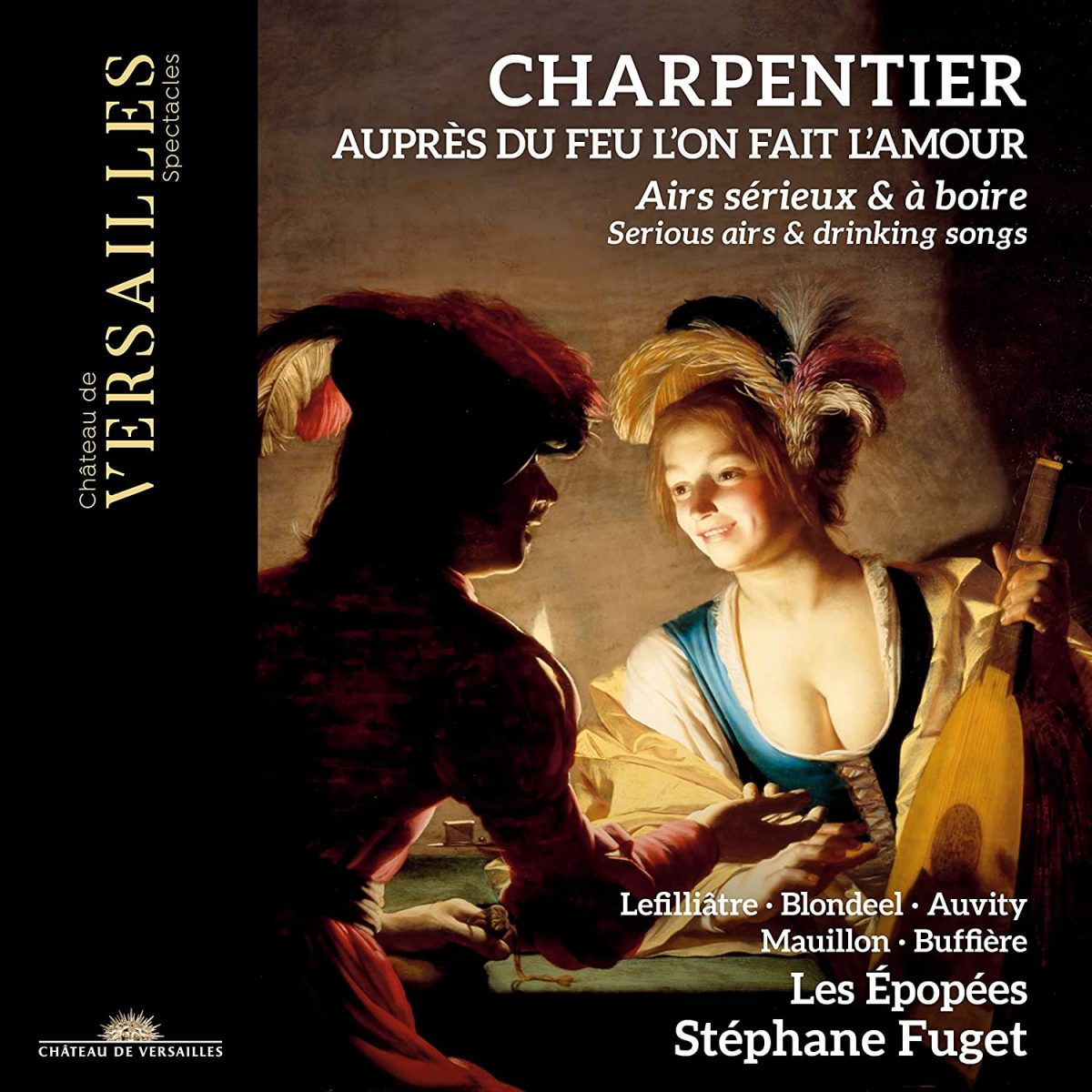Airs serieux & à boire
Les Épopées, directed by Stéphane Fuget
76:29
Versailles Spectacles CVS 089
The history of the French air de cour goes back to the end of the 16th century, when it played an important role in the lavish ballets mounted by the court. Later it would be taken over as a major component in Lully’s creation of French opera and still later would form a separate, though related genre that played an important role in salon life and in its more bucolic form other perhaps less salubrious gatherings. While usually written for a solo voice and continuo, airs for two or three voices are also found.
Marc-Antoine Charpentier’s contribution to the repertoire includes nearly forty extant examples of which some three-quarters are gathered on this appealing CD. They are found in three major sources: the famous political and cultural publication Mercure de France, with whose editor Charpentier enjoyed an excellent relationship and which were issued under the title Airs serieux et à boire; pieces issued posthumously by the publisher Ballard; and various unpublished manuscripts found in other sources, in particular the Bibliothèque Nationale.
While the drinking songs basically speak for themselves, being straightforward drunken ditties (‘Veux-tu, compère Grégoire’) or satirical (‘Beaux petits yeux l’écarlate’ is a particularly vicious example), the serious airs cover a wide range of topics, with pastoral love and its vicissitudes a favourite topic, but here also including two panegyrics to Louis XIV. While many of the airs are simple strophic songs, occasionally with a refrain, some follow a more complex course. That applies to none more than ‘Non, non, je ne l’aime plus’, one of the most sophisticated and extended (most last an average of barely two or three minutes). It is virtually an operatic scène, opening with a strongly declamatory air before proceeding to an alternation of récits and airs of which ‘Je pense au temps heureux’, a bitter-sweet reflection on happier days has a special beauty, the air as a whole an affecting expression of conflicting emotions. It is outstandingly, even passionately sung by haute-contre Cyril Auvity, the busiest singer in the programme, unsurprisingly given the composer himself was an haute-contre and must have often taken part in performances of this repertoire. Equally as memorable is the following air, ‘Ah! Laissez-moi rêver’, unusually termed aire tendre, it is the lament of a shepherdess for her lost love. Consisting of only a sestet with the opening words acting as a refrain, the constant repetition demands artistry of the highest order if it is to make an impression, the variants of colour and heartrending expressivity found by soprano Claire Lefilliâtre in the simple opening word ‘Ah!’ alone a masterclass in interpretative subtlety.
Such standards are common to the performances of these exquisite little gems, with the drinking songs given a great sense of character by Auvity and his two male colleagues, Marc Mauillon, perhaps best described by the modern term ‘baritenor’, and baritone Geoffroy Buffière – try the aforementioned ‘Veux-tu, compère Grégoire’ to get a sense of the bucolic fun at one extreme of these airs. The second soprano Gwendoline Blondeel is well contrasted with Lefilliâtre, having a less bright and marginally heavier voice, but her diction is not always as good as those of the other singers. The continuo accompanying instruments are bass violin, bass viol, theorbo or guitar and harpsichord, the last named played by director Stéphane Fuget.
Versailles Spectacles’ presentation is as stylish as usual and includes an excellent essay on the songs by Charpentier expert, Catherine Cessac. Less laudable is the lack of identification of the singer(s) of each item, so easily done just by putting initials against the number concerned. (Please don’t write in to tell me there are two ‘GB’s; the second would be ‘GBu’!)
Brian Robins
